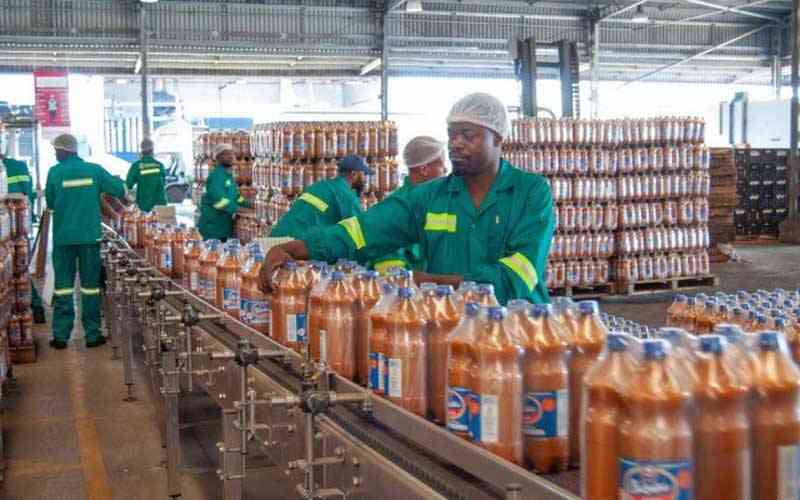
THE country's persistent power crisis, according to researchers at Morgan & Co, will counteract Delta Corporation's anticipated capacity growth.
Zimbabwe is experiencing low power output due to outdated thermal power generation facilities and historically low usable water levels at Kariba. As a result, some local firms have lost production time, and others have had to pay more to make up for the power shortages.
Delta, a publicly-traded beverage manufacturer, indicated in its latest trading update that it had started expanding its capacity across all of its industries. Four new production lines would be put into service in the next six months.
The beverage manufacturer announced toward the end of last year that between November last year and May 2023, it would commission additional lines for Super Chibuku, Chibuku, PET drinks, and another Chibuku line in South Africa.
This comes after the corporation acknowledged that it was at its manufacturing capacity and unable to boost the nation's supply of PET and Super Chibuku.
Morgan &CO warned that the anticipated capacity growth will be offset by the power crisis in Zimbabwe and in the region.
“We identify production risks associated with power outages that could offset the projected immediate benefits of capacity expansion,” the research firm said in their analysis of Delta's trading update for the third quarter ended December 31 2022.
“The country is experiencing depressed power output because of obsolete thermal power generation infrastructure and historically low usable water level at Kariba.
- Chicken Inn knockout Harare City
- Ngezi stunned by 10-man Herentals in Chibuku Cup
- Inside sport: Make domestic football better
- FC Platinum reach Chibuku Cup last eight
Keep Reading
It pointed out that this is likely to affect capacity utilisation in local operations while challenges at Kariba will permeate to National Breweries and its ability to maintain product supply in its markets.
“Extended power outages in South Africa are also likely to dent the fruits of the group's expansion drive into the region but we maintain that these obstacles will be short-term in nature,” it said.
Delta had a considerable increase in the percentage of foreign currency sales during the quarter, reaching above 70%, according to the beverage manufacturers' quarter trading update.
In comparison to the same period in 2021, the volume of lager beer increased by 17% for the quarter and 18% for the nine months. The business said that the extra packaging plant installation would be operational in the first half of 2023 as planned. In Zimbabwe, the volume of sorghum beer increased by 12% during the course of the first nine months and by 11% for the quarter.
Additionally, work is being done at the Harare Brewery to install extra production capacity, which will be put into service in the first half of 2023.
According to the company, Natbrew Zambia's volumes are recovering, with a gain of 11% over the past nine months that includes some regional exports.
The volume at United National Breweries South Africa remained unchanged for the third quarter but increased by 20% for the first nine months, despite power outages and distributors and resellers cutting back on market service in reaction to rising fuel prices.
The volume of sparkling beverages increased by 5% for the quarter and by 14% for the entire nine-month period.
For the third quarter and the past nine months, African Distillers Limited (Afdis) recorded volume growth of 10% and 11%, respectively. The lack of glass bottles in the area limited the availability of ciders.
The company started local cider fermentation and commissioned a new PET machine for the bottling of spirits.
Due to the year-long juicing fruit carrier constraints, Schweppes Holdings Africa's volume remained unchanged for the first nine months.
According to Morgan & Co, the persistence of the almost entirely dollarised informal market sector has been a major factor in Delta's continued volume expansion despite the contractionary policies put in place by monetary and fiscal authorities.
“Delta's distribution channels extensively tap into near-cash markets, and we assert that this has driven its 70% plus foreign currency sales contribution. We also add that electioneering activity will complement demand at least until the second quarter in Delta's F24 year (fiscal year 2024),” it said.






